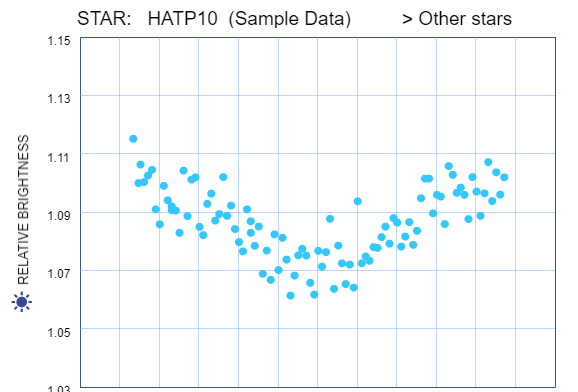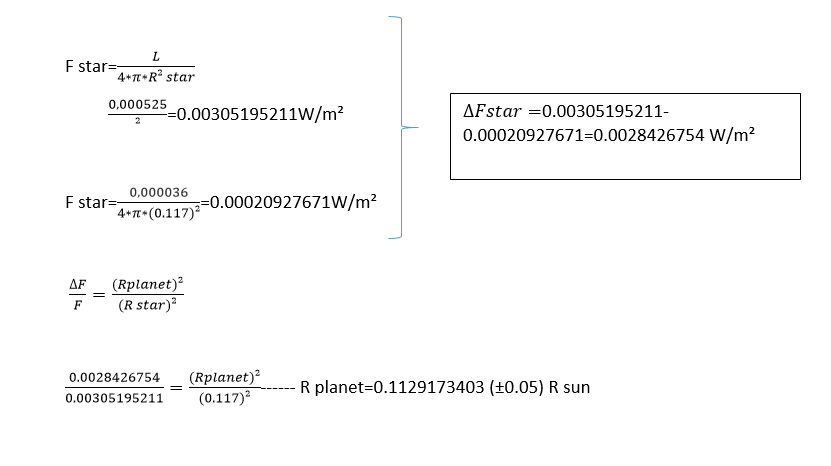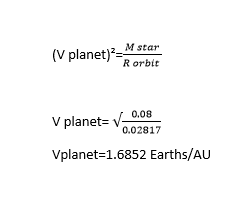To do this I used Harvard Laboratory of Exoplanets
When I entered I was able to obtain a lot of inormation.
First i could take a look to this representation of how an exoplanet tours HATP-10 (that was the only star I was allowed to investigate)
 Then, in theory I could take a picture of the star, bou after trying it for days, my computer couldn't take de image:
Then, in theory I could take a picture of the star, bou after trying it for days, my computer couldn't take de image:
It always appeared this text and the photo didn't load

Anyway, i was able to obtain this graphic that shows the lightcurve of star HATP10

After this, I started sutudying Trappist 1-e.
It orbits inside a system. Its star its called Trappist-1. Here you can see a simulation where you can see the system, the rest of the planets and their star.

In that Nasa's page I found this grid where It is part of the information I need:

Then, in this page I found all the information needed about the star:

The luminosity =0,000525±0,000036 W
These are the calculations:

Now, I can calculate del volume of the exoplanet:
